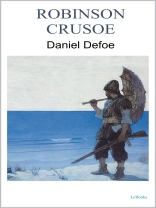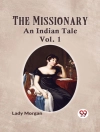Robinson Crusoe, by Daniel Defoe, is an adventure novel that explores survival, solitude, and human resilience. The story follows Crusoe, an English sailor who, after a shipwreck, is stranded on a deserted island. Over the years, he faces multiple challenges, from finding food and shelter to encountering cannibals and meeting his loyal companion, Friday. Through ingenuity and determination, Crusoe transforms the island into his home, reflecting the colonial mindset and self-sufficiency spirit of the time.
Since its publication in 1719, Robinson Crusoe has been considered one of the first modern novels and a cornerstone of adventure literature. Its detailed realism and exploration of man’s struggle against nature have inspired countless adaptations and reinterpretations. Beyond its survival narrative, the novel addresses themes of faith, civilization, and dominion over the environment, making it a profoundly symbolic work.
Its relevance endures in its ability to depict the human desire for exploration and control over adversity. Robinson Crusoe remains a fascinating story of resilience, adaptation, and the search for meaning in solitude, standing as a timeless classic of world literature.
关于作者
Daniel Defoe was an English writer widely recognized as one of the pioneers of the modern novel. Born in London, Defoe is best known for his masterpiece Robinson Crusoe (1719), one of the most celebrated novels in world literature. His realistic narrative style and ability to blend historical facts with fiction significantly contributed to the development of English-language prose. In addition to being a novelist, Defoe was a journalist, merchant, and political pamphleteer, actively participating in the intellectual and social debates of his time.
Defoe ventured into journalism and political literature before fully dedicating himself to fiction. He wrote numerous pamphlets and articles, many of which led to imprisonment and persecution due to his critical stance on the government. However, it was with Robinson Crusoe that he achieved literary recognition. The novel, inspired by the real-life story of castaway Alexander Selkirk, tells the tale of a man who survives on a deserted island and builds his own world from nothing, exploring themes such as solitude, resilience, and civilization.
Considered a forerunner of the modern novel, Defoe influenced generations of writers with his direct and detailed narrative style. His works, which blend fiction with historical chronicle elements, laid the groundwork for the development of realism in literature. His impact extends to adventure literature, psychological novels, and narrative journalism.
Defoe’s legacy endures in popular culture, with Robinson Crusoe being the subject of countless adaptations in film, television, and literature. His vision of an individual's struggle against adversity continues to resonate today, solidifying him as a key figure in literary history.












